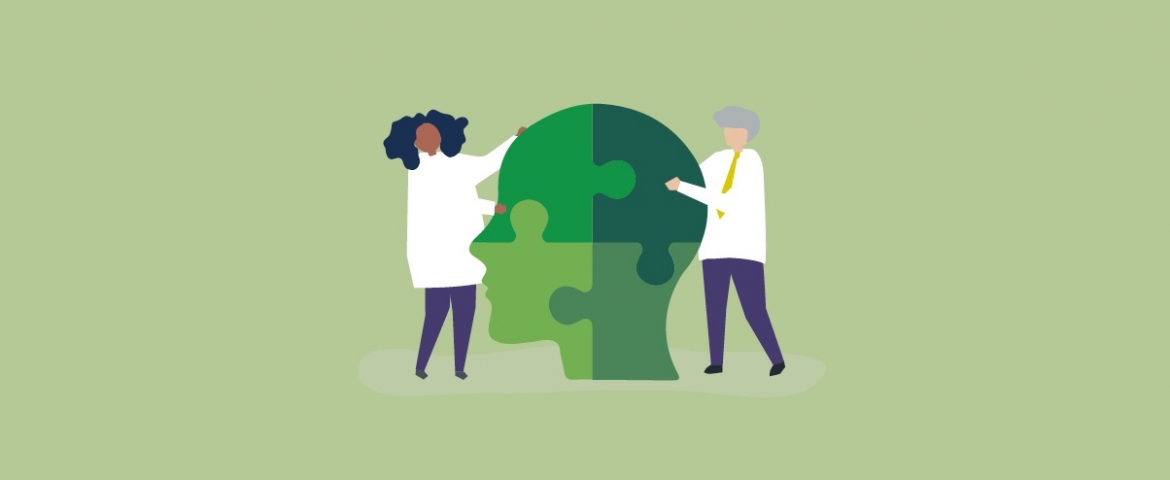By, Martha Velting, LMSW
If my experience as a mental health clinician has taught me anything – it is that mental health is health. Period. And just like physical health – it is not simply a choice nor is it something that people can “will” their way through. Fortunately, societal attitudes are slowly shifting as we better understand the interconnective and complex nature of the brain and body. And still, there is much work to be done understanding how to better support and provide treatment to those in our community who live who live with mental health conditions.
During the month of May there are national and local efforts to raise awareness, fight stigma, provide support, educate the public, and advocate for policies that support those who struggle with mental illness and their families.
Because of the stigma that has been attached to living with mental health challenges, early warning signs are often missed. Early detection and intervention are key to helping yourself or someone else get connected to treatment and support. When a mental illness goes untreated – it can lead to worsening symptoms and unhealthy coping mechanisms.
Here are five commonly overlooked symptoms of a mental health condition:
1. Fatigue
Managing and living with a mental illness can be exhausting. Not only are the symptoms difficult to manage – but the secondary issues related to masking the symptoms, feeling shame about the symptoms, and even avoiding can be extremely taxing. If you are exhausted for what seems like no reason (or know someone else who appears to be), it is worth asking questions to understand why and seek help.
2. Physical pain
Our bodies and minds are undoubtedly connected. Research tells us that more than half of people who struggle with chronic pain also experience symptoms of depression. Additionally, that people who struggle with depression may be more sensitive to pain due to brain chemistry. If you are having pain that cannot be explained by a physical health diagnosis (or know someone else who may be), it is worth exploring whether this could be related to your mental health.
3. Perfectionism
Some mental illnesses (depression, for example) can distort how you perceive yourself, others, and the world around you. This can show up as really high expectations. While there is nothing inherently wrong with self-improvement, balance is key. If you are struggling to accept (or know someone who may be) nothing less than perfection, it could be helpful to explore this with a therapist.
4. Lack of Emotion
This is a common symptom that is not often talked about. Many people who experience depression have what is known as “anhedonia.” Anhedonia is when you find yourself feeling less interested in things that have typically been interesting or brought pleasure to your life. When someone has gone through a traumatic experience, a lack of emotion could also indicate that their nervous system has been overwhelmed. If you notice that you (or someone you know) have gone an extended amount of time without experiencing joy, please check in with yourself about that. It may be time to seek help.
Anhedonia is when you find yourself feeling less interested in things that have typically been interesting or brought pleasure to your life. When someone has gone through a traumatic experience, a lack of emotion could also indicate that their nervous system has been overwhelmed. If you notice that you (or someone you know) have gone an extended amount of time without experiencing joy, please check in with yourself about that. It may be time to seek help.
5. Avoidance
We have all procrastinated a certain task or activity at some point our lives – for lots of reasons! If avoidance of certain tasks, places, or people, turns into a pattern, it could be part of a larger constellation of symptoms that indicate a mental health concern.
As we learn more about the ways that mental health concerns show up in minds and bodies, we learn to understand, respect, and have compassion for the diversity of each other’s lived experiences. This reduces stigma. Everyone’s health/mental health journey is unique. If you identify with any of these above symptoms or know someone who may be struggling, please reach out and ask for help. Talking to your friends and family about your struggles, calling a crisis support line, or scheduling an appointment with a counselor or therapist can be important first steps.
Available resources if you would like to seek help:
988 Suicide & Crisis Lifeline
The 988 Suicide & Crisis Lifeline can be reached anytime by calling or texting 9-8-8. This line provides 24/7 free and confidential support for anyone experiencing suicidal, substance use and other mental health crises.
You can also go to www.988lifeline.org to chat online with a professional.
Psychology Today
Find detailed listing for mental health professionals in your area by typing in your zip code. You can search listing based on insurance, concern/issue, type of therapy, and more!
https://www.psychologytoday.com/us
Your health insurance coverage
Check with your health plan to see which mental health resources are available to you. If you are a Priority Health member, you can find information about what help is available, what your plan covers, and how to find behavioral health care providers to meet your needs. A behavioral health team is available to help 24 hours a day, seven days a week. Call the number on the back of your member ID care or log into your online account.
Online self-help tools
There are a multitude of self-care tools available online. If you are unable to see a provider and/or are looking to expand your mental health toolkit – feel free to check out Headspace and Insight Timer. Both offer free resources that can help with stress, anxiety, and depression. If you are a Priority Health member, you have free access to myStrength, an online self-help resource. Priority Health members can access the tool through their member account online.
Community Resources
Anyone who lives in Michigan who needs free or low-cost mental health care can contact their local Community Mental Health program. The Michigan Department of Health and Human Services Website has contact information listed based on your county of residence.
 About the Author: Martha Velting, LMSW is a Clinical Program Specialist in the Behavioral Health Department at Priority Health. She oversees outpatient community-based partnerships with several local providers. Martha is passionate about the well-being of all people and loves to see people grow, heal, and come into more fullness in themselves and relationships. She has also benefited from mental health therapy and her own meditation practice. Martha is a wife and mom.
About the Author: Martha Velting, LMSW is a Clinical Program Specialist in the Behavioral Health Department at Priority Health. She oversees outpatient community-based partnerships with several local providers. Martha is passionate about the well-being of all people and loves to see people grow, heal, and come into more fullness in themselves and relationships. She has also benefited from mental health therapy and her own meditation practice. Martha is a wife and mom.


